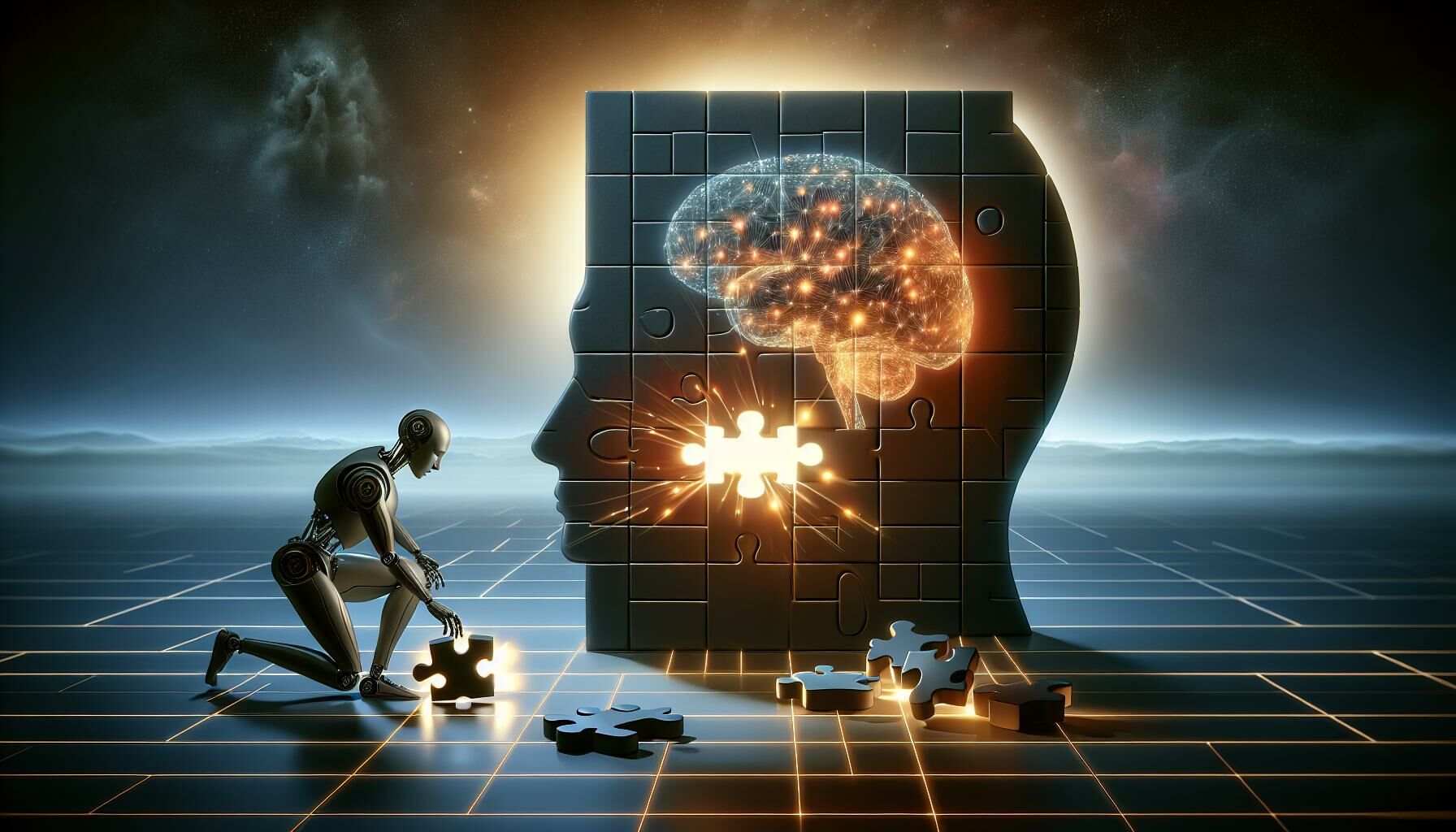How AI is testing the boundaries of human intelligence

Artificial Intelligence (AI) is rapidly transforming our world, sparking debates about its potential and limitations. While AI has showcased remarkable abilities in areas like data processing and pattern recognition, it still grapples with tasks requiring reasoning, creativity, and abstract thinking. This ongoing series, “AI vs the Mind,” delves into these disparities, pitting human experts against AI tools to highlight where machines excel and where they fall short.
Understanding the nuances between human and artificial intelligence is crucial in navigating our evolving relationship with technology. By examining these differences, we can better appreciate the unique strengths of the human mind and the current boundaries AI is pushing. Join us as we explore how AI is testing the limits of human cognition and what this means for our future.
Understanding AI’s impact on human intellect
How AI mimics and surpasses human thinking
Artificial Intelligence (AI) mimics human thinking through algorithms that process data and identify patterns. These algorithms imitate decision-making processes, drawing on vast datasets. Tasks that involve extensive data analysis, like fraud detection or predictive maintenance, see AI surpass human capabilities.
For example, AI systems in chess play at a superhuman level, exploiting millions of possible moves and their outcomes. In natural language processing, AI models like GPT-3 generate human-like text by analysing extensive language datasets. These models understand context and semantics to a degree that rivals human performance.
However, AI’s methods lack the creativity and intuition inherent in human thought. While it excels in specific tasks involving data recall and logical patterns, AI doesn’t yet display true reasoning or innovative thought processes. It follows pre-programmed paths without genuine understanding.

The current limits of AI in cognitive functions
AI reaches its limits in areas requiring abstract thinking, emotional intelligence, and cultural context understanding. Tasks such as creating art, understanding humour, or comprehending social cues highlight AI’s shortcomings. Human cognition integrates these elements seamlessly, but AI struggles without explicit programming.
AI tools lack the contextual awareness human testers bring to software testing. They cannot grasp cultural or social factors that impact user interaction. Human testers can identify issues in user experience that AI tools overlook, ensuring products meet diverse user needs.
Furthermore, AI doesn’t possess self-awareness or emotional intelligence. It can’t assess the seriousness of situations or prioritize actions based on emotional responses. For instance, autonomous cars face challenges in making ethical decisions during unavoidable accidents, where human judgment considers qualitative factors.
Informative decisions stem from training, not initiative. Understanding causality and consequences lies beyond AI’s current scope. While AI enables impressive data-driven insights, it remains confined to its programmed parameters. This evidences the current gap between AI and human cognitive functions.
AI in complex problem-solving
Case studies: AI outperforming humans in strategic games
AI has demonstrated its prowess in complex problem-solving through strategic games. Deep Blue, an AI developed by IBM, defeated world chess champion Garry Kasparov in 1997 (Campbell, AHoane, and Hsu, 2002). This victory marked a significant milestone, showcasing AI’s ability to process vast amounts of information and make strategic decisions. In 2016, Google’s AlphaGo defeated a professional Go player, a task once thought impossible due to the game’s complexity (Silver et al., 2016).

AI’s performance in these games isn’t limited to brute-force computation. It also involves sophisticated pattern recognition and adaptability. Games like chess and Go require foresight, planning, and the ability to evaluate numerous potential future states. These abilities translate into various real-world applications, from supply chain optimization to financial modelling.
Implications for industry and research
AI’s success in strategic games has profound implications for industry and research. Advanced AI systems can now assist in complex decision-making processes. For instance, in the medical field, AI can aid in diagnosing diseases by analysing patient data and suggesting treatment plans. A study involving over 2,000 chest X-rays revealed that AI showed 27% higher sensitivity in identifying abnormalities than radiology reports (Diagnostic Imaging, 2023).
In research, AI enhances data analysis capabilities, enabling scientists to draw insights from large datasets. In finance, AI-driven algorithms predict market trends and optimise investment strategies. These applications demonstrate AI’s potential to revolutionise various sectors, improving efficiency, accuracy, and outcomes.
However, relying solely on AI in these areas might lead to challenges. While autonomous AI systems can perform specific tasks exceptionally well, they often lack the nuanced understanding that human experts provide. A hybrid approach, combining AI’s computational power with human intuition and experience, may offer the best results. This method aims to reduce professional burnout, enhance decision-making, and ultimately provide better care and service.
AI’s role in complex problem-solving continues to expand, pushing the boundaries of what these systems can achieve and offering transformative possibilities across multiple domains.
Ethical considerations and risks

Ensuring AI safety in dynamic environments
AI systems excel at handling repetitive tasks and identifying common defects; however, they may struggle with complex scenarios or new features. Human oversight is crucial in dynamic environments to ensure AI responds correctly to unforeseen situations. For instance, researchers Crosby et al. (2019, 2020) highlight the importance of translating animal cognition principles to AI, indicating that adaptability is key for AI systems operating in changing contexts.
Testing strategies must integrate human intuition and creativity. Critical thinking is essential for designing adaptive AI systems. Without these elements, AI may not anticipate novel problems, leading to safety risks. Ethical and technical vigilance is necessary to preclude unforeseen complications, ensuring AI systems function as intended while being resilient to dynamic conditions.
Ethical impacts of AI on decision-making
AI-driven decisions can amplify existing biases present in data. Algorithms may inadvertently reinforce discrimination if not meticulously scrutinised. It’s vital to eliminate potential biases to ensure fair and ethical outcomes. Studies, including those by Firestone (2020) and Fleishman (1972), stress the need to balance AI’s efficiency with human ethical standards to maintain integrity in decision-making processes.
Human oversight in AI-driven decision-making helps mitigate these risks. By consistently evaluating AI outputs through an ethical lens, testers ensure responsible use of technology. This approach not only aligns AI initiatives with broader human values but also promotes trust and accountability in AI applications.
The future of AI and human intelligence
As AI continues to evolve it’s essential to recognise the complementary strengths and limitations of both AI and human intelligence. By leveraging AI’s ability to process vast amounts of data and combining it with human creativity and ethical judgement society can address complex challenges more effectively. Maintaining human oversight ensures that AI applications are fair and trustworthy. The future holds great promise for a synergistic relationship between AI and human intellect driving innovation while safeguarding ethical standards. This balanced approach will pave the way for advancements that benefit humanity as a whole.
Latest Thailand News
Follow The Thaiger on Google News:


























